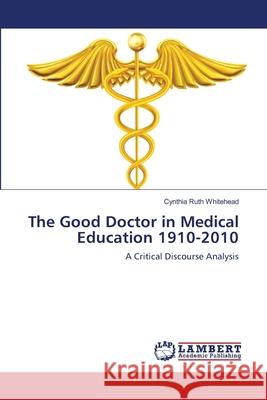The Good Doctor in Medical Education 1910-2010 » książka
The Good Doctor in Medical Education 1910-2010
ISBN-13: 9783659474934 / Angielski / Miękka / 2013 / 332 str.
Ideas of what constitutes a good doctor underlie decisions about medical student selection, curriculum design and the structure of medical education at all levels of training. As with any social phenomenon, constructs of the good doctor are historically derived and socially negotiated. Factors at play include knowledge (what does a good doctor need to know), identity (who can become a good doctor) and notions about the relationship of doctors to society (the social responsibility or social accountability of the good doctor). Ideas about the good doctor tend to be considered as 'truths' in any era, with little attention to the assumptions that underpin any particular formulation. This work dissects dominant constructs of the good doctor in North American medical education between 1910 and 2010, using Foucauldian critical discourse analysis. The book identifies significant discursive shifts in the conception of the good doctor over the past century and explores the repeated rediscovery of a set of 'truths' that are portrayed by medical educators as new and urgent issues generation after generation.
Ideas of what constitutes a good doctor underlie decisions about medical student selection, curriculum design and the structure of medical education at all levels of training. As with any social phenomenon, constructs of the good doctor are historically derived and socially negotiated. Factors at play include knowledge (what does a good doctor need to know), identity (who can become a good doctor) and notions about the relationship of doctors to society (the social responsibility or social accountability of the good doctor). Ideas about the good doctor tend to be considered as truths in any era, with little attention to the assumptions that underpin any particular formulation. This work dissects dominant constructs of the good doctor in North American medical education between 1910 and 2010, using Foucauldian critical discourse analysis. The book identifies significant discursive shifts in the conception of the good doctor over the past century and explores the repeated rediscovery of a set of truths that are portrayed by medical educators as new and urgent issues generation after generation.











